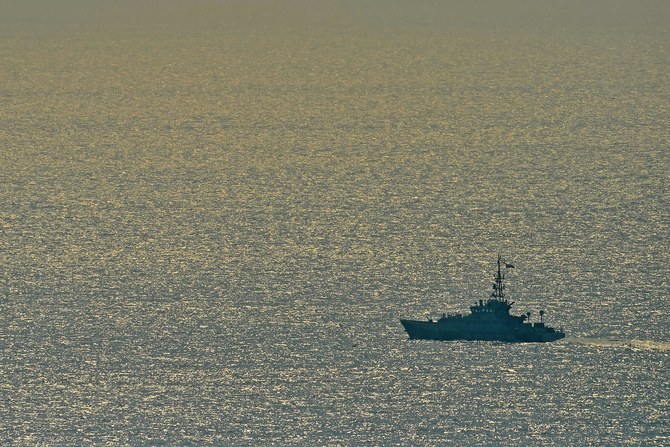LONDON: The UK has announced it will use the military to prevent migrants entering the country from France via the English Channel, but the plans have drawn criticism from French politicians and rights groups in the UK.
More than 4,000 people have successfully made the crossing so far this year, and many of those have done so in small and overburdened boats.
Responding to the escalating number of people attempting the journey, the Home Office officially requested last week that the Ministry of Defence (MoD) assist the Border Force in its duties.
Home Secretary Priti Patel said her department was “working to make this route unviable” and announced on Sunday the appointment of a former Royal Marine to manage the government’s response to the crossings.
In response to Patel’s request, the MoD announced on Monday that it would send a Royal Air Force plane with spotters on board to assist the Border Force in its operations in the English Channel.
A @RoyalAirForce Atlas aircraft has been flown from @RAFBrizeNorton this morning to support Border Force operations in the Channel. Authorised by the Defence Secretary @BWallaceMP, the surveillance aircraft is an initial offer of assistance as @DefenceHQ supports @ukhomeoffice.
— Ministry of Defence (@DefenceHQ) August 10, 2020
But the issue has caused tension between the UK and France.
The French National Assembly member for Calais, Pierre-Henri Dumont, slammed the decision to use the military to prevent crossings as a useless “political measure.”
He said: “What is the British navy going to do if it sees a small boat? Is it going to shoot the boat? Is it going to enter French waters? It’s a political measure to show some kind of muscle but technically speaking it won’t change anything.”
Paris has also requested that London provides £30 million to fund French efforts to prevent migrants from attempting the dangerous crossing from their side.
Patel’s decision to use the military to prevent Channel crossings has also drawn condemnation from human rights groups.
Bella Sankey, a barrister and director of Detention Action said: “The home secretary’s hysterical plea to the navy is as irresponsible as it is ironic. Pushbacks at sea are unlawful and would threaten human lives.
“No civilised country can even consider this, let alone a country with a tradition of offering sanctuary to those fleeing persecution,” she added.
Migration has long been a hot button issue in British politics, and this will not be the first time authorities have used the military to enforce migration policies.
In January 2019, the Royal Navy sent three ships to the Channel to prevent migrant crossings, saying at the time that the deployment would “help prevent migrants from making the dangerous journey.”

















